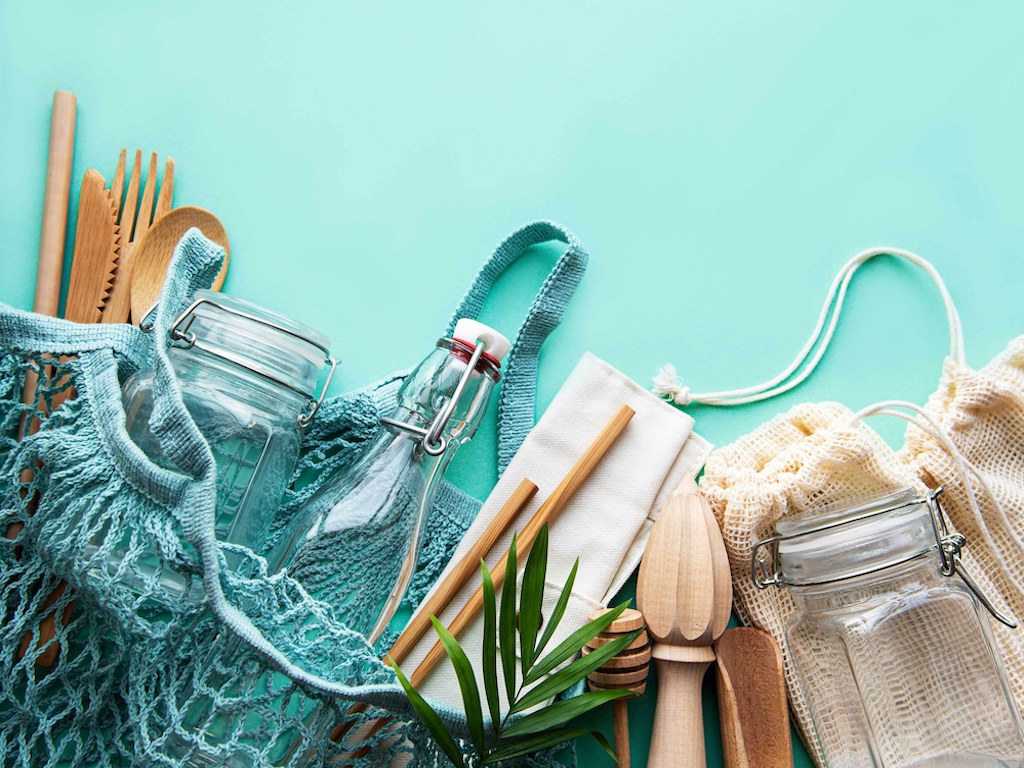7 Mins Read
At this point, you shouldn’t need any more convincing about why it’s important for all of us to try to live a lower waste lifestyle. Our plastic waste crisis has never been more acute, and living plastic-free can actually make you healthier. Since it’s currently Zero Waste Week, we decided to compile the ULTIMATE zero waste list of tips, suggestions, ideas and recommendations.
DAILY LIFE
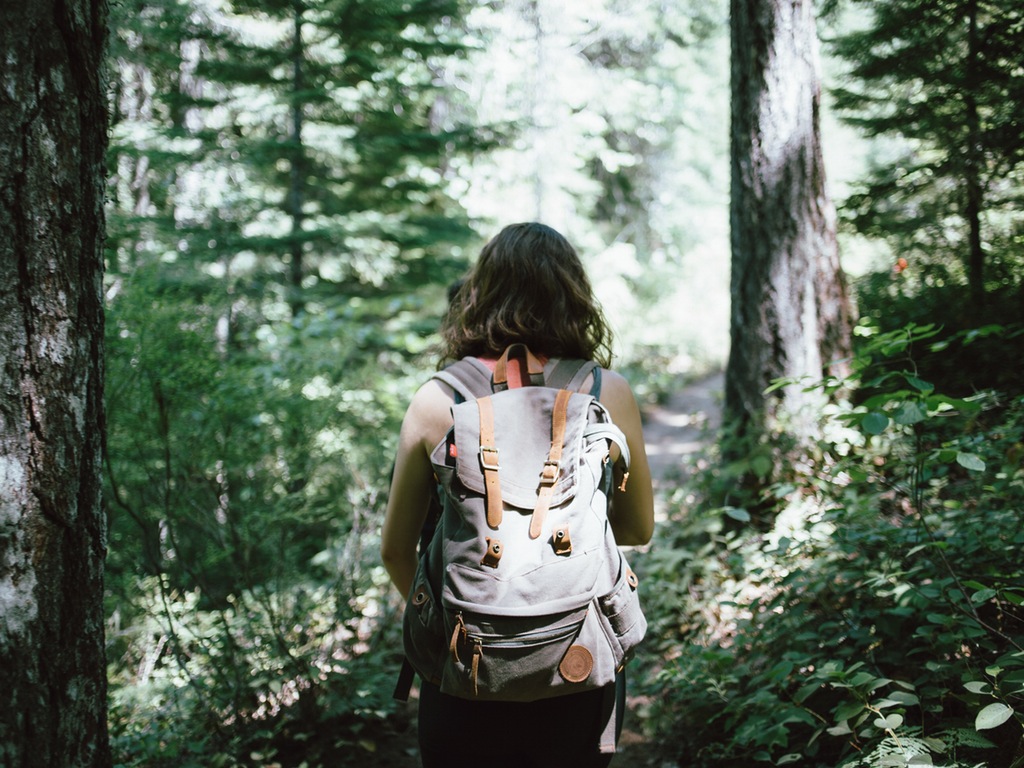
1. Go out prepared: have a reusable cup, bag, food containers and utensils in your work bag/handbag.
2. Buy less stuff – just avoid whatever you don’t really need.
3. Support zero waste businesses or brands with low-waste features as much as you can.
4. Avoid anything single-use as often as possible.
5. Travel less – Covid-19 has made this easier, but post-Covid, try to avoid unnecessary travel and if you do travel, here’s how to do it better.
6. Use public transport instead of private cars/Uber when possible, and ideally walk as much as you can.
7. Quit plastic as much as you can, here’s a handy guide.
8. Rethink all your purchasing and consumption decisions: do you really need it? Is there a low waste alternative? Once you train your brain to do this, it will become a natural instinct.
9. Plan weekends, holidays and leisure time around outdoor activities in nature, and avoid making shopping or malls a big part of your life.
ONLINE SHOPPING
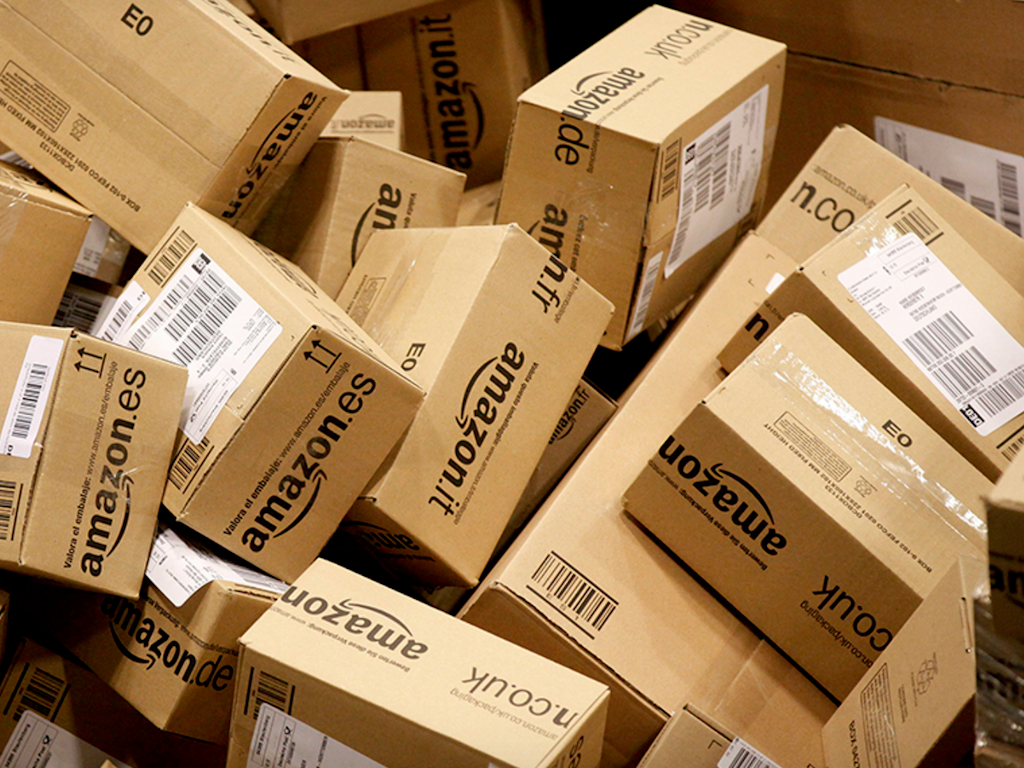
10. If shopping on Amazon, request their plastic-free options.
11. Reduce online shopping overall and simply fewer things overall.
12. Support websites that use recycled cardboard and plastic-free packaging.
13. Avoid rushing delivery: work with the shipper to consolidate items so only one shipment is made.
GROCERIES & KITCHEN
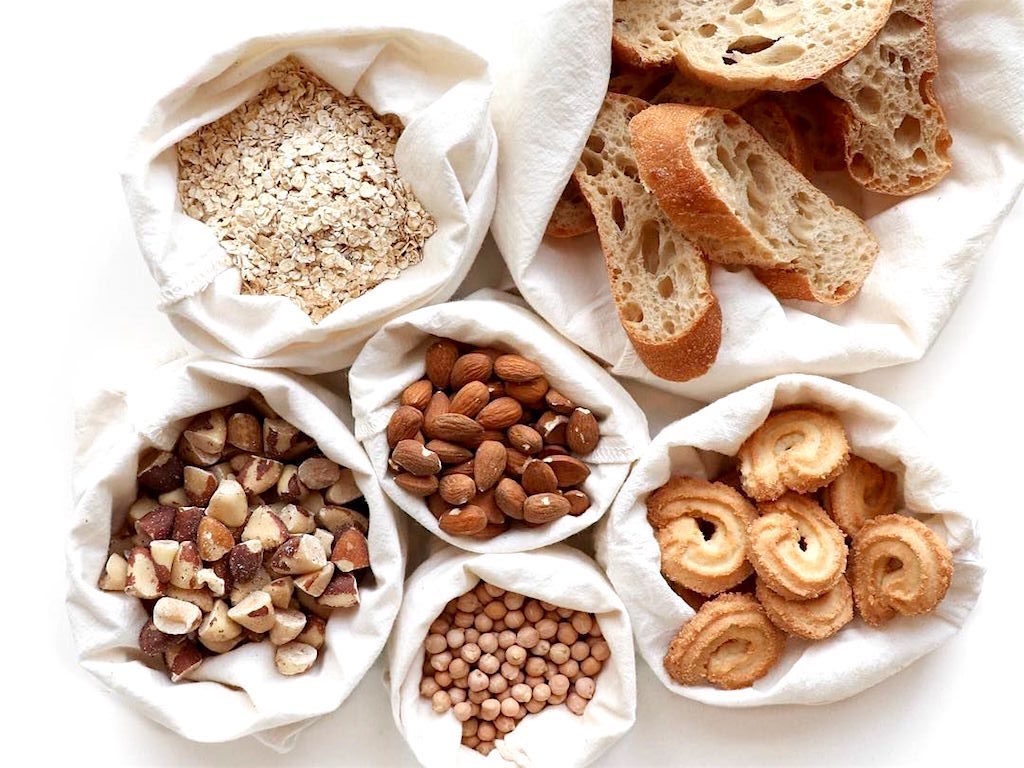
14. Buy groceries in bulk at packaging-free stores.
15. Shop at the wet markets and farmers markets.
16. Avoid packaged foods.
17. Bring your own containers and bags.
18. Start composting your food waste, here’s how.
19. Recycle whatever you can, and what you can’t recycle, quit.
20. Eat organic, locally grown foods whenever possible – organic agriculture is far less wasteful than conventional.
21. Buy ugly vegetables and fruits as they are most likely to be unsold at supermarkets.
22. Plan your meals as much as you can.
23. Don’t go the grocery story hungry, and make sure you have a list, so you buy only what you need.
24. Be creative with older food and leftovers so you avoid wasting it – here are some ideas.
25. Ask receipts to be emailed to you instead of printed out.
26. Cook more at home instead of relying on packaged foods and delivery services.
27. Quit paper towels, try reusable options or cut up old clothing and use as cleaning cloths.
28. Use your freezer more: cook in batches and then freeze for later.
FASHION
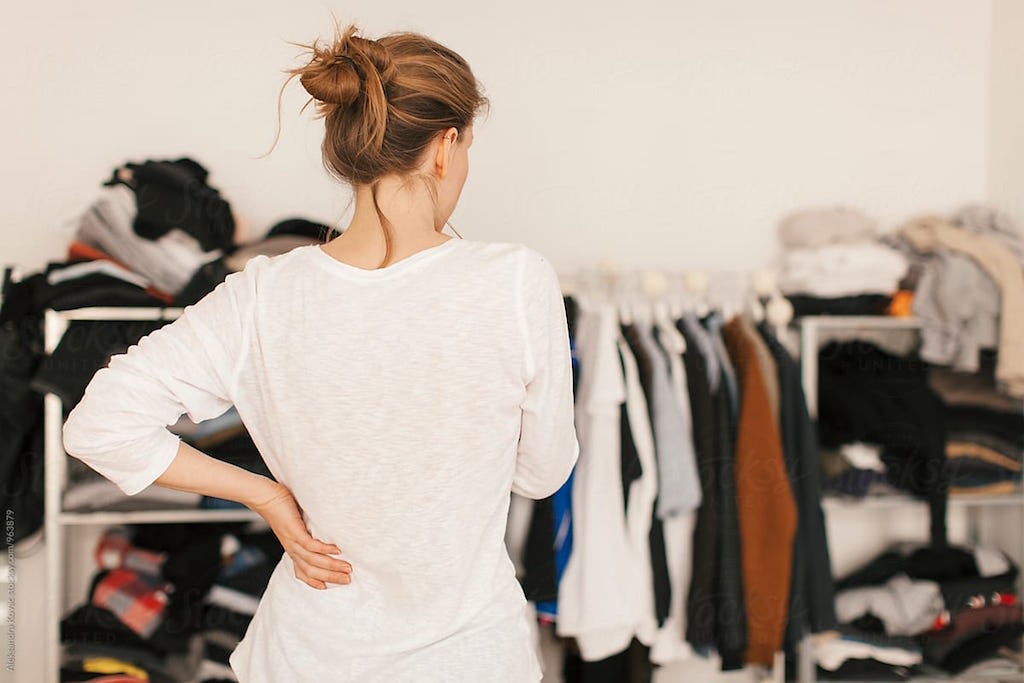
29. Only buy second hand or vintage clothing shoes if possible.
30. Avoid fast fashion brands as much as you can.
31. Invest in upcycled brands (that use deadstock or waste fabrics) if you have to buy new.
32. If you love fashion and want variety, rent clothes instead of buying.
33. Repair all your old clothes and shoes so you can continue wearing them.
34. Organise your closet so it’s easy to find stuff.
35. Create a capsule wardrobe to make dressing easier.
36. Donate or resell items you no longer need to keep them in circulation.
37. Wash your clothes less often – they are not as dirty as you think and you will save on laundry waste.
38. Add a microplastics filter bag to your washing machine to avoid microfibres entering our water streams/rivers/oceans.
HOME
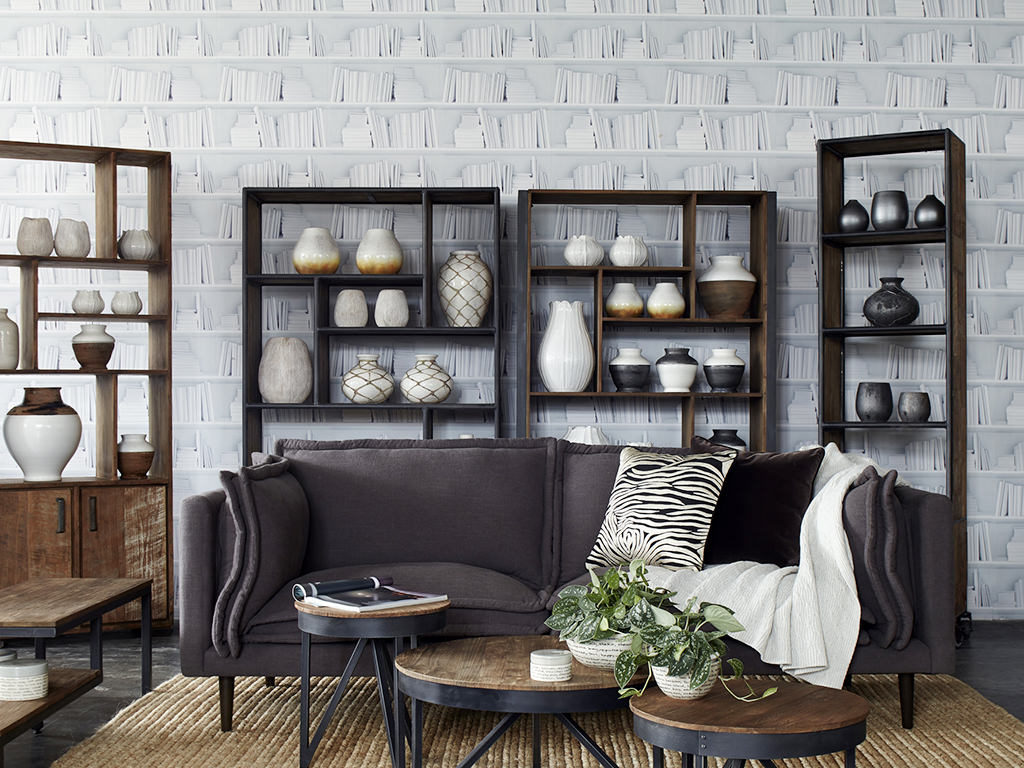
39. Buy vintage or second-hand furniture.
40. Rent furniture if you need more variety.
41. Don’t replace your electronics often – wait until they really don’t work.
42. Buy refurbished electronics instead of new.
43. Support plastic-free florists that work with seasonal stems or even better, invest in plants instead.
44. Make your own home cleaning products (most things can be cleaned with a combination of white vinegar, baking soda and lemons).
45. Instead of buying people physical presents, gift them with an experience, invite them for a meal or make them something.
46. Invest in a home water filter so you never need to buy bottled water.
47. Switch all your bills to paperless/email options.
48. Use rechargeable batteries instead of disposable ones.
49. Unplug all your electronics when you are not using them to avoid wasting energy.
50. Transition to LED lightbulbs.
51. Avoid using too much heating and air conditioning.
52. Choose soy wax candles in reusable jars.
53. Avoid using a dryer when you wash your clothes, line dry instead.
BABIES
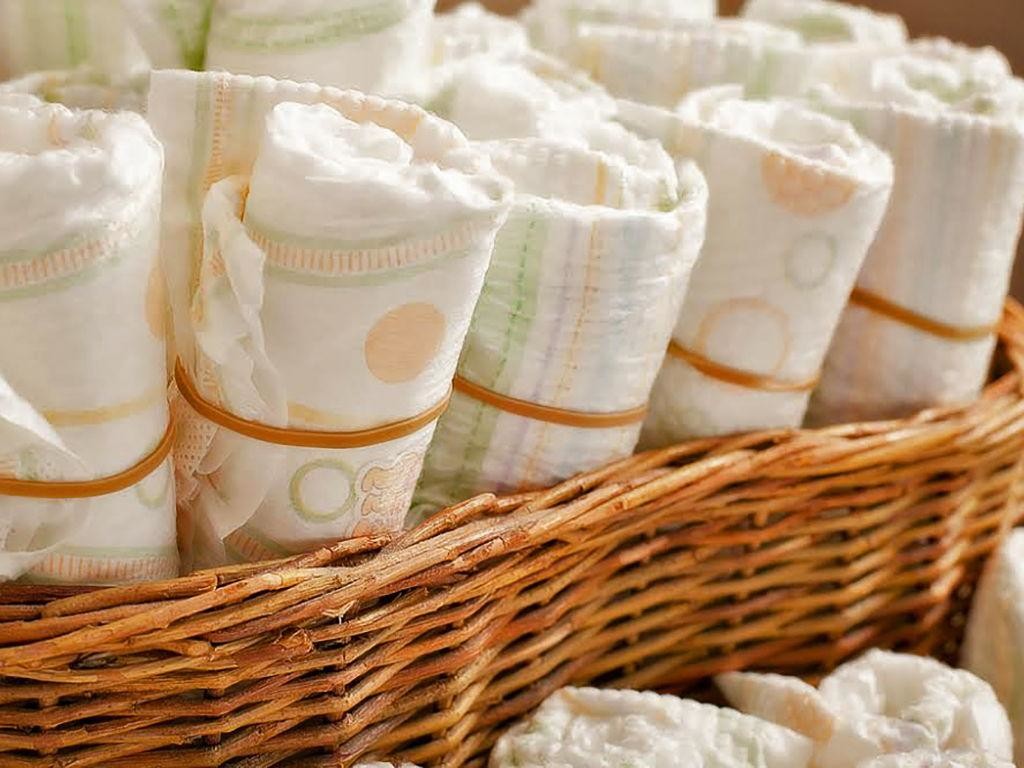
54. Choose cloth diapers/reusable nappies, they are very easy to use and better for your bubba because they are plastic-free.
55. Avoid baby wipes: make your own cleaning solution and use reusable cloths.
56. Join a toy library/ toy rental subscription service so you get to enjoy variety without buying hundreds of toys.
57. Invest in long-term toys made from wood and other natural materials.
58. Throw zero-waste birthday parties.
DINING OUT

59. Order plant-based dishes (a vegan diet is far less wasteful than one containing meat, dairy and seafood).
60. Support chefs that support local, organic agriculture.
61. Bring your own food container and take unfinished food back home.
62. Avoid delivery if you can, do takeaway and bring your own container to collect or try to find restaurants that offer reusable packaging.
63. Quit using single-use coffee cups and packaged drinks, and invest in refillable or reusables.
64. Quit using straws completely.
65. Support food banks that redirect uneaten foods into meals for the hungry.
66. Choose restaurants that support plastic-free and zero-waste initiatives.
BEAUTY & BATHROOM
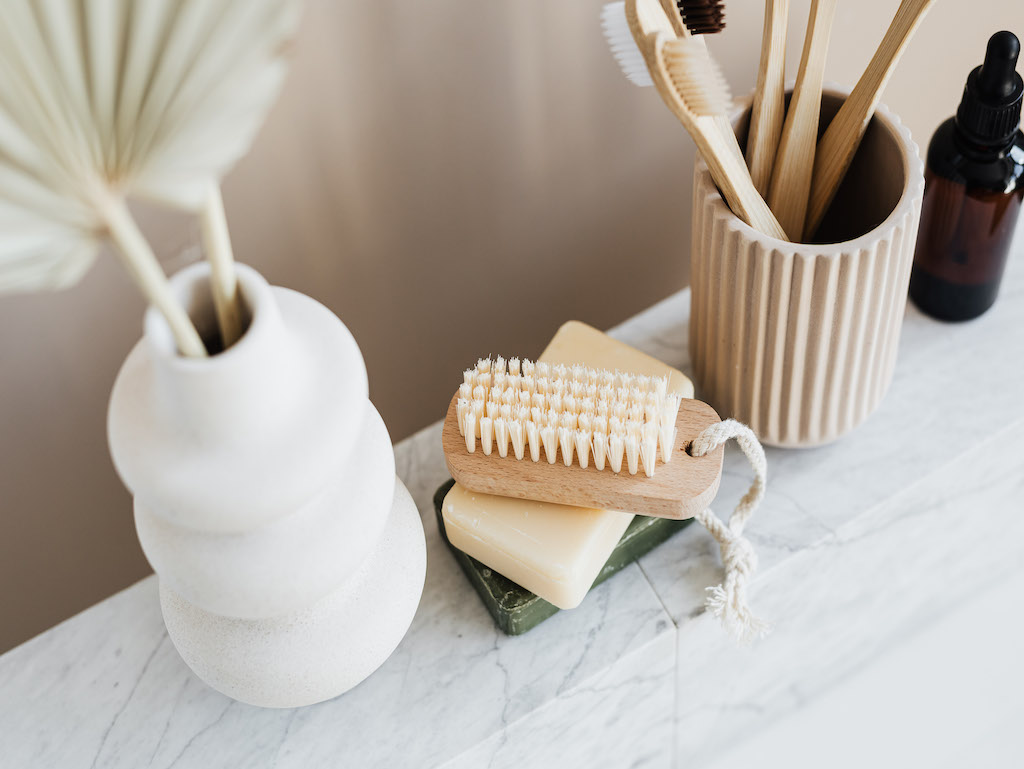
67. Transition to soap bars as much as you can – shampoo, conditioners, face wash, face cream, body lotion, body wash and more.
68. Use pure cold-pressed oils and butters that you can buy packaging-free instead of expensive creams (shea butter, argan oil, olive oil, coconut oil, mango butter)
69. Make your own beauty products – mouthwash, toothpaste and face masks are very easy to do.
70. Avoid liquid products as much as possible, but if that’s not possible, choose brands that offer refills so you can reuse the bottle.
71. Quit toothpaste tubes, use a plastic-free option instead or make your own.
72. Reduce the amount of makeup you use: it’s hard to be 100% zero waste with makeup (though not impossible) but it starts with fewer products.
73: Switch to a safety razor (plastic-free and with replaceable metal blades).
74. Switch to a reusable menstrual cup and period underwear (for women).
75. Install a bidet/Japanese style toilet to reduce toilet paper usage.
76. Shorten your showers! Wasted water is one of the most worrying problems we face.
77. Use reusable and washable facial rounds.
78. Turn off your water heater whenever it isn’t in use.
OFFICE
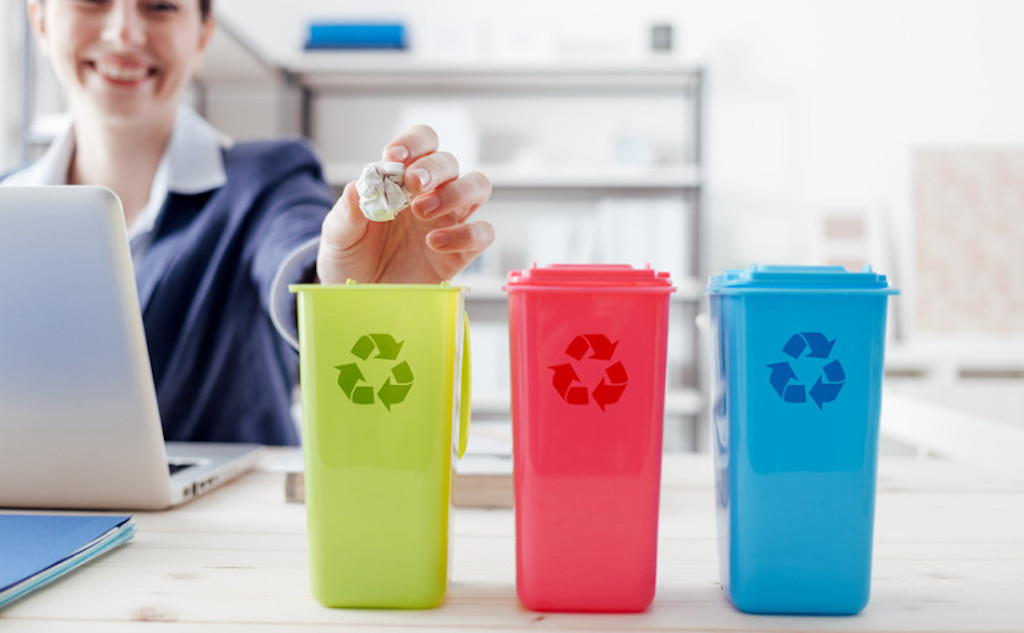
79. Print as little as possible.
80. Make sure the pantry has reusable cups, cutlery and food containers for employees to use.
81. Set up composting and recycling bins.
82. If ordering takeout, try to do joint food delivery orders so every employee is not ordering separately.
83. Get passionate employees involved in a zero waste committee to help ensure low waste practices are implemented.
84. Encourage Green Monday: start a campaign where employees eat plant-based once a week.
85. Increase the thermostat so you use less electricity.
Lead image courtesy of Freepik.

